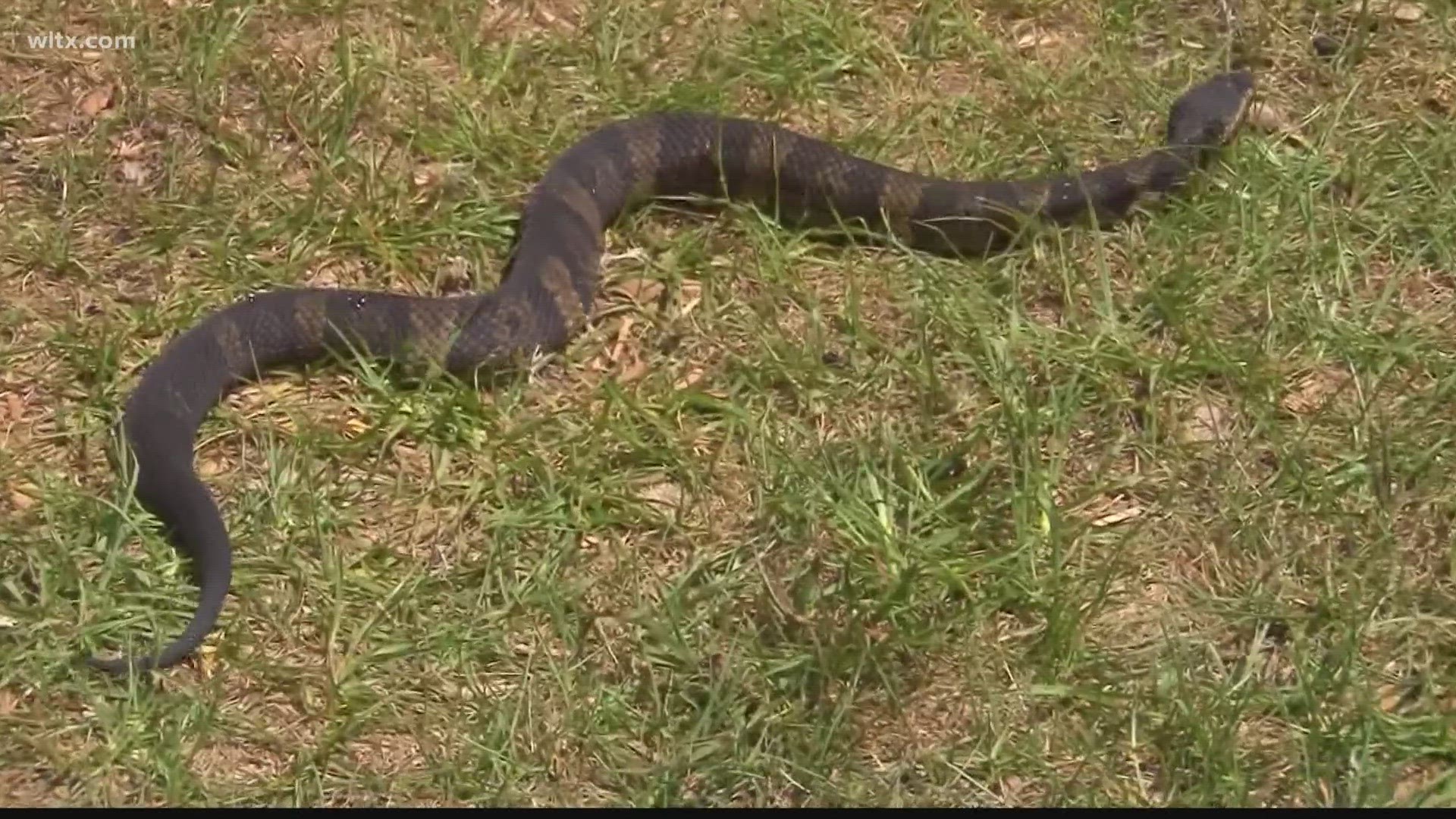COLUMBIA, S.C. — Snakes are cold-blooded creatures, meaning their body temperature fluctuates with the environment.
Sean Foley is the curator of herpetology at the Riverbanks Zoo. He explains why we see snakes so often during the hot days of summer. “They don’t like those really, really hot temperatures any more than we do, so they’ll move into shady spots when it’s that warm.”
These cool areas often coincide with recreational spots where people relax outdoors.
According to a recent study by Emory University, for every 0.8 degree Celsius increase in daily temperature, snakebites surged by nearly 6%. The study further distinguished between venomous and non-venomous snakebites, with incidents involving venomous snakes rising by 5.6% while non-venomous bites increased by 5.8%.
It's crucial to be aware of your surroundings when spending time outdoors.
Foley says, “even if you know and can differentiate between venomous and non-venomous snakes, it’s best to just leave them alone anyway."
Despite taking precautions, snake encounters can still happen. Knowing how to respond can be lifesaving.

